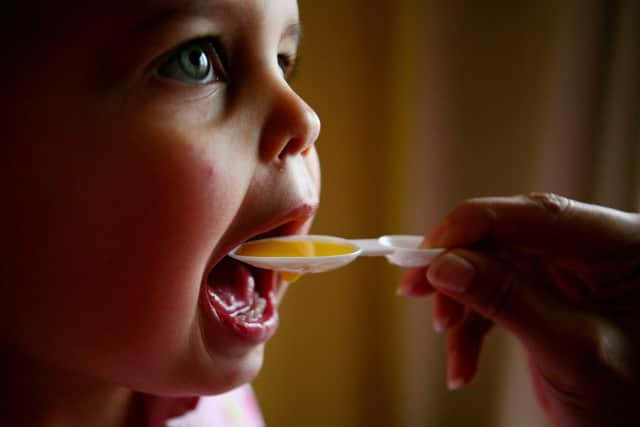Indonesia bans cough syrups as 100 children dead of kidney failure
A total of 99 children have died, while 206 have been affected by an acute kidney injury (AKI) as a result of taking some types of cough medicines since January.
It comes just weeks after a cough syrup in The Gambia was linked to the deaths of nearly 70 children. The World Health Organisation said the medicines used there - made by an Indian pharmaceutical company - contained "unacceptable amounts" of diethylene glycol and ethylene glycol and were "potentially linked with acute kidney injuries".
Advertisement
Hide AdAdvertisement
Hide AdThe health minister of Indonesia said the same chemical compounds found in the affected medicines in the Gambia were also found in some medicines used locally, although they were not made by the same company.


"Some syrups that were used by AKI child patients under five were proven to contain ethylene glycol and diethylene glycol that were not supposed to be there, or of very little amount," said Budi Gunadi Sadikin.
Indonesian authorities issued a blanket ban on all syrups and liquid medicine. However, on Thursday, they said that the products they had tested were Flurine DMP Syrup produced by PT Yarindo Farmatama and Unibebi Cough Syrup, Unibebi Fever Syrup and Unibebi Fever Drops, all produced by Universal Pharmaceutical Industries. They said they contain Ethylene Glycol (EG) contamination that exceeds the safe threshold.
"Pending the final quantitative research report from BPOM (National Agency of Drug and Food Control), the Health Ministry took conservative measures by (placing) a temporary ban on the use of syrup medicines," Mr Sadikin said.
He said the number of children presenting to Indonesian hospitals with AKI had risen to 70 per month.
Sadikin stated that 70 cases of atypical acute kidney failure among children below five years of age had been detected in Indonesia per month. However, he said the government was most concerned by the fact that half of all affected children have died.
"Children with acute kidney failure have reached 70 per month, and the real case (count) might be higher than this,” he said. “We also record close to 50-percent casualty rate."
However, Indonesian authorities stated that the results of the contamination test on the products could not definitely support the conclusion that the use of the drug syrup in question had a relationship with the incidence of acute kidney failure – saying that in addition to drug use, there are still several other risk factors that cause acute kidney failure.
Advertisement
Hide AdAdvertisement
Hide AdIn the Gambia, nearly 70 children died as a result of taking the syrups, prompting the WHO to issue a global alert earlier this month. The Indian authorities and the cough syrup manufacturer, Maiden Pharmaceuticals, said that the products had only been exported to the Gambia.
The company has been blacklisted by Indian authorities numerous times for quality violations and is among nearly 40 Indian pharmaceutical companies blacklisted by Vietnam for exporting sub-standard products.
Local media in Indonesia said that market traders were still selling the banned products, saying that buyers “know the risk”.
Comments
Want to join the conversation? Please or to comment on this article.
